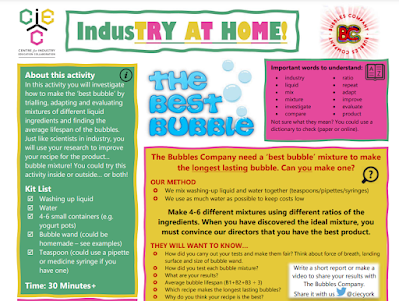 |
Our free resource shows that science can offer the solutions to environmental problems
The Sustainable Stories and Solutions for Our Planet resource
from CIEC offers practical, hands-on science lessons to help Upper Key Stage 2
pupils explore sustainability in everyday materials, personal care products,
food, energy, and – most recently – fuels.
With the rise of electric vehicles, now is the perfect time to help
children understand how sustainable fuels can reduce air pollution and protect
our environment. The newest section focuses on how sustainable fuel is made and
its role in future transport.
Key Activities:
- Electricity
to Gas: A teacher-led demo shows how water splits
into gases using electricity, prompting discussion about hydrogen fuel
cells and electric vehicles.
- Main
Beam: Children investigate how adding cells to a
circuit affects bulb brightness – a fun way to understand how larger
vehicles need more energy.
- Lumpy
Challenge: Pupils explore how surface area affects
dissolving by testing different sugar shapes, linking this to materials
used in fuel cell coatings.
- Increasing
Surface Area: Children test different grinding methods to
find which creates the finest powder, helping them understand particle
size and reaction speed.
 |
Top teaching tips
As you introduce children to the idea
that science is a way to provide solutions to environmental problems you may
find the following tips helpful.
 |
Letting children plan their own investigations fosters independence and leads to deeper understanding
· Review children’s prior knowledge at the start of each topic. This means that you can tailor next steps in learning as well as establish a baseline for evidence of progress.
· Record children’s ideas during demonstrations. This enables them to focus on their thinking rather than their writing and will be useful to guide later discussions.
· Let children’s plan and carry out investigations independently although this can be scary! Yes, they will make mistakes, but in the long run the learning will be deeper and more ‘sticky’.
We would love to hear how you get on
using this activity. Do you have any teaching tips or photographs to share? Get
in touch at ciec@york.ac.uk







.png)










